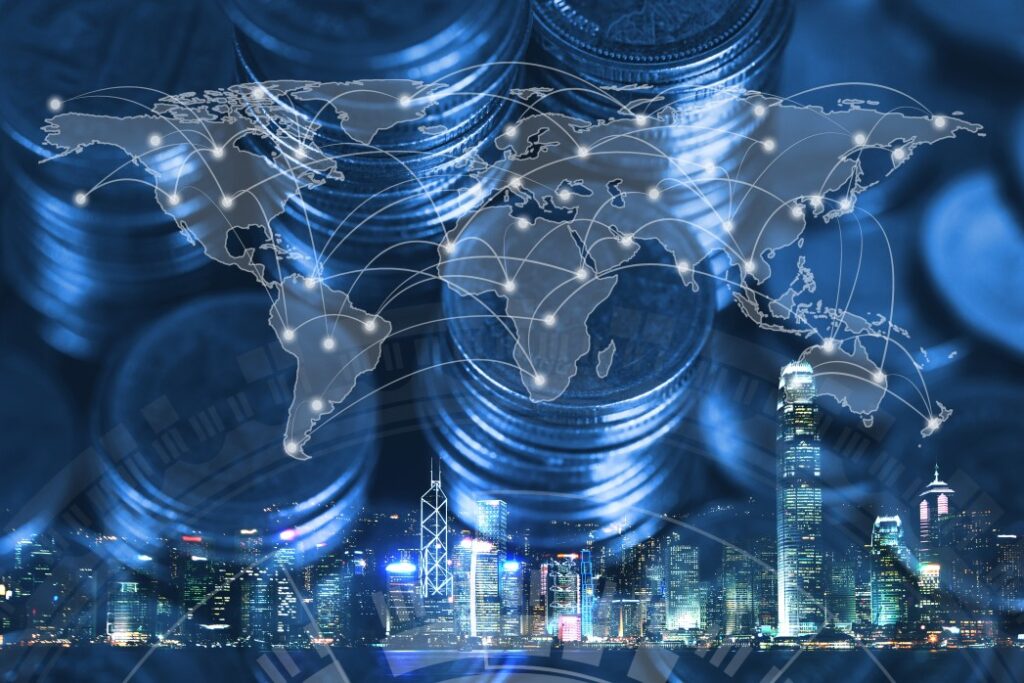FDI Strategy Examples | What They Are + Real World Look
What Is a Foreign Direct Investment (FDI)?
FDI or Foreign Direct Investment refers to financial investment by an investor in another country, which may be the source of capital for the foreign company. FDI is also known as “inbound” investment, and it can be either direct or indirect. In the case of direct investment, the investor directly controls the company’s business operations. On the other hand, indirect investment involves the purchase of shares in a company from its shareholders. The most common form of FDI is through equity investments, where the investor buys shares in the company.
The 2021 World Bank Report of FDI showed that most foreign investment still goes into strategic industries such as:
- Utilities
- Construction
- IT services
- Mfg – Auto
- Mfg – Computers
The pandemic in 2020 saw a slump in investment across the board. Computers doubled in that period. The auto industry saw a 6% decline in FDI. This is due to increased demands.

Types of Foreign Direct Investment
There are different types of FDI:
• Direct Investment – This type of investment occurs when the investor purchases shares of the company directly. It involves high risk because there is no guarantee that the investment will return any profit. If you invest $100,000 into a new manufacturing plant, you could earn $1 million in profits after five years.
• Reverse Investment – This type of FDI is similar to direct investment, but instead of investing in a company, the investor purchases shares from the company. This is often used by companies looking to raise money from overseas investors.
• Strategic Investment – This type of foreign investment creates long-term value. An example of strategic investment would be an oil company setting up a refinery in developing countries. Another would be a multinational corporation opening a factory in a developing country.
• Commercial Investment – This international investment is made for financial gain. It does not have to be related to economic development. A pharmaceutical company might set up a research facility in a developing country. This type of investment is likely to involve short-term gains and long-term benefits.
• Financial Investment – This global investment is made to finance projects such as building factories, hotels, etc. These investments are generally considered low risk because they do not require much initial capital. They are typically used to fund expansion plans.

Foreign Direct Investment (FDI) Examples
The following are some examples of how a foreign direct investment works:
• A US company sets up a manufacturing plant in China. The company invests $10 million in the project. The Chinese government gives the company tax breaks and subsidies. After two years, the company makes $20 million in profits. The company then pays taxes on those profits at a rate of 30% and sends the rest back to the United States. As a result, the company saves $7 million in taxes.
• A German company builds a hotel in India. It spends $5 million on the project and employs 500 people. Each employee earns $50,000 per year. Over ten years, the company generates $500,000 in profits. The company pays taxes on these profits at a rate of 20%. The company then sends $250,000 back to Germany. As a result, it saves $250,000 in taxes.
• A Japanese company buys land in Mexico. It spends $2 million buying the land. The Mexican government offers a 10-year loan for half the land. If the company uses the land to build a factory, it can pay off the loan within three years. Japan saves $2 million in interest payments.
• A Saudi Arabian company opens a factory in Malaysia. It spends $1 billion on the project. The Malaysian government provides the company with a 15-year tax holiday. In return, the company promises to employ 1,000 Malaysians. The company will make $100 million in profits over the next five years. The company pays taxes at a rate of 5%, so it saves $50 million in taxes. It then sends $50 million back to Saudi Arabia. As a result, Saudi Arabia saves $50 million in income taxes.
• A French company sells its shares in a Brazilian company. The Brazilian company has spent $3 million building a factory that produces steel pipes. The Brazilian company now needs to expand its production capacity. To do this, it needs $6 million. The French company agrees to lend the money to the Brazilian company. The Brazilian government requires the company to pay an annual interest rate of 8%. After seven years, the company also has to repay the principal amount plus interest. As a result, the Brazilian company must pay $480,000 in interest.

Foreign Direct Investment Benefits
FDI is important because it helps countries grow their economies by providing them with new sources of revenue. Foreign companies invest in developing countries because they see the growth potential. Companies use FDI to create jobs, increase exports, and improve living standards. Governments often give incentives to attract foreign investors. These include lower corporate taxes, cheaper electricity rates, free land, and reduced tariffs on imported goods. In addition, FDI helps governments raise funds to finance projects such as roads, hospitals, schools, and other public services.
Foreign Direct Investment can benefit developing countries in many ways. Some of these benefits include:
• Increasing Foreign Trade – When a country receives FDI from another country, it increases trade between the two countries. This means more products are sold. More sales mean increased revenues for the importing country’s government. For example, if a Chinese company invests in a South African mine, the South African government may send more raw materials to China. These raw materials could produce consumer goods like cars or computers.
• Creating Jobs – Many developing countries need workers to help develop their industries. Businesses hire local workers who previously had no job opportunities by investing in factories. For example, when a Japanese company builds a plant in India, it hires Indian workers to operate the plant.
• Improving Living Standards – Foreign direct investment (FDI) creates jobs. Workers earn wages that allow them to buy food, clothing, and housing. They spend some of their earnings on entertainment, education, and health care. They save the rest. If workers earn $10 per day, they spend about half of their salary on necessities. They save the remaining 50 cents per day.
Start-up companies usually have low-profit margins. However, they can quickly become profitable by expanding into different markets.

Factors that go into Attracting FDI
There is a clear reason why some countries attract more FDI than others. Here are some of the main things that businesses would consider before investing in another country:
- Size of the opportunity
- Political stability
- Precedents
- Cost of labour
- Availability of resources/raw material
- The rule of law
Size of the opportunity
What is the size of the investment opportunities? Companies such as Nike and Apple would not have been able to launch and grow at the rate they did if they did not leverage FDI. It meant that they could keep the manufacturing costs as low as possible. The sheer amount of money they save from taking this investment abroad makes this a massive opportunity. Businesses also look at potential risk factors when considering the size of the opportunity. They might decide against investing in a particular country due to high risk involved. In addition, they might not want to take the time and effort required to manage those risks.
Political Stability
Businesses do not usually make investments based on the political situation in a host country. However, they will consider how stable the political environment is. Political instability can lead to high levels of corruption which can deter companies from entering the market. On the other hand, a politically stable environment allows businesses to plan ahead without worrying about sudden changes in laws or regulations.
Precedents
Businesses often look at whether a particular industry has already established itself in a specific country. Companies will avoid starting up operations where a significant competitor is already present. They will also try to avoid situations where there is a history of conflict between governments and foreign investors.
Cost of Labour
The cost of labour is one of the most critical factors determining whether a business should invest in a particular country. There are three main ways companies pay for labour: by paying salaries, providing benefits, and using temporary staff. Salaries are paid directly to employees. Benefits include healthcare, pensions, and training. Temporary staff work for a fixed period and then leave. This type of arrangement is known as contract staffing. The cost of labour is irrelevant if there isn’t a skilled workforce or one can be trained. Human capital is essential to bringing products to market.
Availability of Resources/Raw MaterialRaw materials are needed to produce products.
Manufacturing products where the raw materials are sourced negates the cost and risk of shipping them elsewhere. A company may choose to invest in a country because it needs raw materials that you cannot find elsewhere. For example, a car manufacturer may need to source steel from China.
Rule of Law
A country’s legal system plays a crucial role in attracting FDI. If a country does not have a well-developed rule of law, businesses may feel uneasy about their ability to operate legally. Companies want to know that they can trust the government to enforce contracts and protect property rights.
Russian Oligarchs FDI
Russian oligarchs such as Roman Abramovic, Mikhail Prokhorov, Vladimir Potanin, Boris Berezovsky, and Alisher Usmanov have invested heavily in Western Europe. Their investments have contributed to the growth of the region.
Chinese government-backed FDI
China has become an increasingly attractive destination for FDI. Many Chinese companies are becoming active overseas. Many of these firms are state-owned. They tend to focus on infrastructure, energy, and technology.
Saudi FDI
Newcastle United was recently purchased by Saudi Prince Abdullah bin Abdul Aziz al Saud. He wants Newcastle to develop its brand of football. He plans to invest $1 billion in the city.
Qatar FDI
Qatari has long been interested in investing abroad. Qatar now ranks among the top 10 countries with the highest number of FDI projects. It is home to the largest natural gas field in the world.
India FDI
India has emerged as a significant investor in Asia. Its rapid economic growth and skilled workforce have built this up. Foreign direct investment (FDI) has increased significantly since 2000. Indian companies are investing in other Asian countries. Foreign companies also find India a prime host country for FDI, especially in the tech sector.
United States FDI
American companies have a global footprint in FDI. They sell goods and services in foreign markets. They also provide technical support.
Final Thoughts
It isn’t uncommon for private investment to come in joint ventures. A foreign company or individual investors may team up with a local one to mitigate its risk. In some cases, this is the only way to access the industry. Potential investors would have an ownership stake in the business that a host country native runs. The decision-making process is backed by well-established market intelligence.
